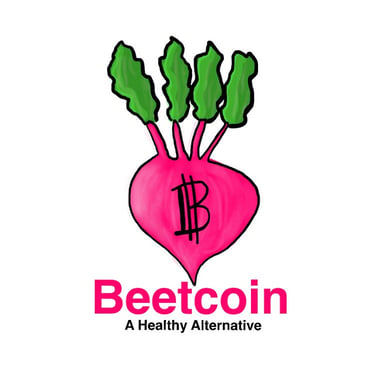Decentralized Democracy: Power to the Digital People
A New and Improved Democracy for the People
FUTURE SCOPE
5/28/20255 min read


Let me issue and control a nation's money, and I care not who makes its laws - Mayer Amschel Rothschild. This quote serves a reminder how our representatives do not have as much power as we would like to believe and the control structures are influenced by those who control the money supply. There have been multiple attempts by US presidents to bring real backing to the money supply such as executive order 11110 for example which issued a silver backed dollar to compete with the US federal reserve dollar, this was repealed not even a year after its passing, reducing its efficacy as a new hard form of money. Throughout history there have been many intrusions into the financial sovereignty of a country's citizens in order to fund things against their own best interests, such as war, surveillance of the population and numerous other operations. Taxation used to be a way for governments to raise money from the people and if they were unsatisfied with the budgeting of the economy, they could protest by not paying taxes, in our current era, money can be created out of thin air and used to fund things directly against the best interests of the people, reducing the value of the currency held by each individual acting as a secret and hidden tax. What would be the elements required to create a decentralised democracy within the best interests of the people, and what would the benefits be
The concept of borders has been gradually shifting and changing through the ages from physical lines drawn in the sand which were created through bloodshed to the nuclear era in which major wars could no longer be fought without global annihilation and had to be channeled through economic and propaganda wars. In our current era tech companies hold a significant amount of power and influence and are likely to shape the laws of the future in their own best interests. Blockchain technology allows us to radically reshape the idea of borders and empower individual freedoms, creating laws in the best interests of the people as opposed to the current power structures in the world today
The 4 essential roles carried out by government are the maintenance of national security, providing public services, economic management and tax collection. These are essential for the wellbeing of a nation and will be just as important within a decentralised world, with a decentralised governance structure we can move from faith in the money supply and government officials to trustless mathematical verification which will enable a greater level of efficiency and reduced corruption, leading to a higher quality of life
The structure needed to shift our current system to a blockchain based trustless system will consist of the following key elements such as decentralised currency and payment system, DAOs to replace institutions, new voting systems as well as a police force which upholds blockchain law. Large economic powers will be contributing to decision making of the economy, similarly to how in today's world the capitalistic system has created vast amounts of wealth and increased the standards of living globally. The voting systems for this will not be economic or power based and will not follow a direct one vote per citizen method either as to create the best standard of life for people. A Quadratic voting model will be used where the more power and influence someone has in terms of "voting tokens" the square root of the number of tokens will be the quantity of influence. For example for a highly influential company with say 100 voting tokens which is based on the amount of economic output as well as amount they are willing to pay per voting token will yield them 10 votes, if they wanted to pay 10 times more to purchase 1000 voting tokens, they would only be entitled to 33 votes, so within this system, the amount of power and influence is relevant but not directly proportional to the power and decision making, keeping the power of the individual while allowing funding for innovation. This quadratic voting system allows innovation and capital to be available while at the same time operating within the best interests of the people, whereas a direct one vote per entity would not yield the same level of benefits for the population
Within a punitive justice system crimes are are disincentivised based on the severe and harsh penalties, this can be a problem when the crime does not match the punishment and can lead to a society which morals are conflated with the law, and where people are locked up funded by tax payer dollars when they could be contributing to the economy. By introducing a system where the punishment is determined based on how the society views the severity of the crime and creating a relevant punishment for that, or if society determines if they want to enforce it there will be a natural incentive structure created for people to take care of themselves and society as opposed to a fear based system where the focus is more on fear and blind submission to current day laws. This will allow people to be less concerned with the law and more willing to weigh up incentive structures, rapidly promoting law changes to accurately represent the needs of a society. This would allow people to not live in fear and adequately judge their punishment in order to determine whether they engage in a certain behaviour or not. The law can act as a guide for morality, but never as a substitute and should be always changing to reflect the needs of the population. With a rapid Quadratic voting system, law changes will be able to made regularly and rapidly, being able to consistently keep up with the needs of the citizens as attitudes shift and innovation flourishes
A system of force will still be required in our decentralised blockchain society in order to maintain laws and discourage bad actors from starting their own private militias. This will be done in cities by a police force with limited powers and limited but some necessary abilities to use force which will abide by the laws of blockchain, having their body cam footage constantly hashed and uploaded onto an immutable blockchain, reducing the opportunity for corruption. An armed military force will also be necessary as to prevent armed groups from taking over and acting against the best interests of the population. Government institutions such as military as well as the other essential ones will be managed by a DAO with different systems embedded to reduce the possibility of corruption, while maintaining an adequate governance system
Within a society where law is blockchain, the incentive structures for the individual to act within the best interests of society would be much greater, allowing more efficient trade and better laws suited to the people as well as a significantly higher quality of life. Individuals who aspire to make it to the top of power structures despite what it takes to get there and are driven by the power drive with a high level of corruption will struggle much more to control and strip away freedoms from the citizens. The creation of this new blockchain system can be compared as the creation of the US Constitution and new political system which enabled a new superpower to emerge within the world, creating a much higher standard of living and mass innovation. This blockchain system would be an opportunity to create a brand new system and become as radical as the United States was when it established the constitution in 1787
Get in Touch
We'd love to hear from you! Reach out for questions, feedback or other enquiries
Reach
info@bitesizedblockchain.com
Bite Sized is not affiliated with these brands in any way





Grab your daily web 3 byte
